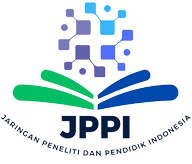The Effectiveness of the Project-Based Learning Model in Enhancing Fifth Grade Students' Learning Motivation in Science Education
DOI:
https://doi.org/10.52434/jpif.v5i1.42556Keywords:
Project Based Learning Model, Learning Motivation, effect, pretest-posttest, science educationAbstract
This study aims to examine the effect of the Project-Based Learning (PjBL) model on student learning motivation in science education for fifth-grade students at SD Negeri 66 Ambon. The research used a quantitative approach with a One-Group Pretest-Posttest Design. The study involved 30 students as the sample, selected using purposive sampling. Data collection was conducted using three techniques: observation, questionnaires, and documentation. The questionnaire instrument used consisted of 14 items with a Likert scale to measure various aspects of student learning motivation. The data obtained were analyzed using SPSS with descriptive analysis, Paired Sample T-Test, and N-Gain tests. The results show that after the implementation of the PjBL model, there was a significant increase in student learning motivation. The average motivation before the implementation of the PjBL model was 52.37% (moderate category), while after the implementation, the average increased to 63.97% (high category). The Paired Sample T-Test results showed a sig (2-tailed) value of 0.000, indicating a significant difference in student motivation before and after the intervention. Based on these findings, it can be concluded that the Project-Based Learning model is effective in enhancing student learning motivation, particularly in science education.
References
Akour, M., & Alenezi, M. (2022). Higher education future in the era of digital transformation. Education Sciences, 12(11), 784.
Amarulloh, R. R., & Irvani, A. I. (2025). Metode Penelitian Kuantitatif dalam Pendidikan: Sebuah Panduan Praktis. PT. Sigufi Artha Nusantara.
Deci, E. L., Olafsen, A. H., & Ryan, R. M. (2017). Self-determination theory in work organizations: The state of a science. Annual review of organizational psychology and organizational behavior, 4(1), 19–43.
Deci, E. L., & Ryan, R. M. (1985). The general causality orientations scale: Self-determination in personality. Journal of research in personality, 19(2), 109–134.
Deci, E. L., & Ryan, R. M. (2012). Self-determination theory. Handbook of theories of social psychology, 1(20), 416–436.
Johannes, N. Y., Salamor, L., & Seimahurua, S. (2020). Peran Keluarga dan Pemerintah Negeri Passo dalam Mendisiplinkan Jam Belajar Anak. Jurnal Pedagogika dan Dinamika Pendidikan, 8(2), 141–148.
Khan, S., Rabbani, M. R., Thalassinos, E. I., & Atif, M. (2021). Corona virus pandemic paving ways to next generation of learning and teaching: futuristic cloud based educational model.
Li, J., & Xue, E. (2023). Dynamic interaction between student learning behaviour and learning environment: Meta-analysis of student engagement and its influencing factors. Behavioral Sciences, 13(1), 59.
Malik, K. M., & Zhu, M. (2023). Do project-based learning, hands-on activities, and flipped teaching enhance student’s learning of introductory theoretical computing classes? Education and information technologies, 28(3), 3581–3604.
Masripah, Anisah, A. S., & Irvani, A. I. (2024). Navigating Faith in the Digital Age: The Role of Technology in Shaping Gen-Z’s Religious Perspectives. Eduscape : Journal of Education Insight, 2(4), 210–223. https://doi.org/10.61978/EDUSCAPE.V2I4.410
Minney, E. I. (2024). A phenomenological study of the lived experiences of mainstream classroom teachers and overly active, distracted students.
Mulvia, R., Ulfa, S., & Ady, W. N. (2021). Rasch Model: Identifikasi Kemampuan Habits Of Mind Peserta Didik SMA. JURNAL Pendidikan Dan Ilmu Fisika, 1(1), 15–23.
Novianto, G. D., Herman, D. A., & Hadiapurwa, A. (2021). Pelaksanaan Pendidikan Jarak Jauh bagi Pendidik dan Peserta Didik di Masa Pandemi Covid-19. Jurnal Inovasi Pendidikan dan Pembelajaran Sekolah Dasar, 4(2), 98. https://doi.org/10.24036/jippsd.v4i2.112590
Pacheco, J. A. (2021). The “new normal” in education. Prospects, 51(1), 3–14.
Pasalbessy, C., Johannes, N. Y., & Mahananingtyas, E. (2022). Pengaruh Media Pembelajaran Quizziz Terhadap Motivasi Belajar Dan Karakter Mahasiswa Pgsd Universitas Pattimura Ambon. PEDAGOGIKA: Jurnal Pedagogik dan Dinamika Pendidikan, 10(2), 299–309. https://doi.org/10.30598/pedagogikavol10issue2page299-309
Peiris, C. L., O’Donoghue, G., Rippon, L., Meyers, D., Hahne, A., De Noronha, M., Lynch, J., & Hanson, L. C. (2021). Classroom movement breaks reduce sedentary behavior and increase concentration, alertness and enjoyment during university classes: a mixed-methods feasibility study. International Journal of Environmental Research and Public Health, 18(11), 5589.
Pratiwi, D. T., Zahratunnisa, F., & Rahmawan, S. (2025). The impact of project-based learning (PjBL) on students’ motivation and learning outcomes: A literature review. ASEAN Journal for Science Education, 4(1), 53–58.
Rosa, N. N. (2020). Hubungan Dukungan Sosial Terhadap Motivasi Belajar Daring Mahasiswa Pada Masa Pandemi Covid-19. TANJAK: Journal of Education and Teaching, 1(2), 147–153. https://doi.org/10.35961/tanjak.v1i2.146
Rusticus, S. A., Pashootan, T., & Mah, A. (2023). What are the key elements of a positive learning environment? Perspectives from students and faculty. Learning Environments Research, 26(1), 161–175.
Septianti, R. P., Pelani, R. R., Pakosmawati, R., & Irvani, A. I. (2023). ANALISIS ATTENTION RELEVANCE CONFIDENCE SATISFACTION (ARCS) FISIKA SISWA SMA. INPAFI (Inovasi Pembelajaran Fisika), 11(01). https://doi.org/10.24114/INPAFI.V11I01.44246
Simbolon, M., Pongkendek, J. J., Henukh, A., & Rochintaniawati, D. (2025). Teachers’ and Students’ Feedback on Sociocultural Interactive Digital Modules for Science Literacy and Problem-Solving: A Transformative Learning Approach. Journal Evaluation in Education (JEE), 6(1), 241–248.
Sökmen, Y. (2021). The role of self-efficacy in the relationship between the learning environment and student engagement. Educational Studies, 47(1), 19–37.
Sulastri, H. P., Irvani, A. I., & Warliani, R. (2024). PENGEMBANGAN MODUL DIGITAL FISIKA BERBASIS PROJECT BASED LEARNING (PjBL) DALAM MENINGKATKAN MINAT BELAJAR PESERTA DIDIK. OPTIKA: Jurnal Pendidikan Fisika, 8(1), 97–111. https://doi.org/10.37478/optika.v8i1.3696
Suryaningsih, S., Nisa, F. A., Muslim, B., & Aldiansyah, F. (2022). Learning innovations: students’ interest and motivation on STEAM-PjBL. International Journal of STEM Education for Sustainability, 2(1), 66–77.
Susanti, D., Sari, L. Y., & Fitriani, V. (2022). Increasing student learning motivation through the use of interactive digital books based on Project Based Learning (PjBL). Jurnal Penelitian Pendidikan IPA, 8(4), 1730–1735.
Downloads
Published
Issue
Section
License
Copyright (c) 2025 Monalisa Nanlohy, Nathalia Yohana Johannes, Leonid Ritiauw, Musa Marsel Maipauw

This work is licensed under a Creative Commons Attribution 4.0 International License.

























